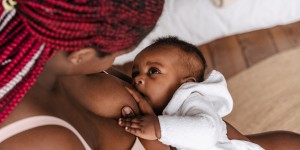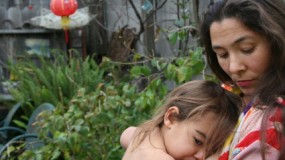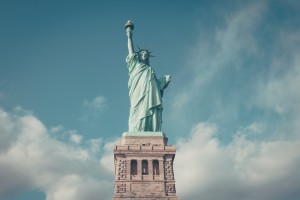 Every mother has the basic human right to breastfeed her baby. It is not illegal to breastfeed your baby in public in New Jersey or in any state in the United States. New Jersey law specifically protects the right to breastfeed in public, permitting every mother to breastfeed in any place within a place of public accommodation where she is otherwise entitled to be. Read the Law
Every mother has the basic human right to breastfeed her baby. It is not illegal to breastfeed your baby in public in New Jersey or in any state in the United States. New Jersey law specifically protects the right to breastfeed in public, permitting every mother to breastfeed in any place within a place of public accommodation where she is otherwise entitled to be. Read the Law
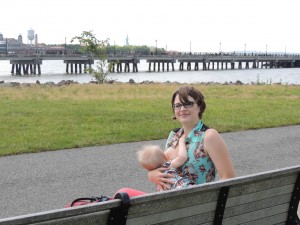 A “place of public accommodation” includes schools, government buildings, courts, taverns, restaurants, libraries, hotels, gymnasium, theaters and hospitals and other locations. A place can still is still a “place of public accommodation” even if it is privately owned. Find the legal definition of “a place of public accommodation, resort or amusement” here. Report any violations of the law in writing to your local public health department.
A “place of public accommodation” includes schools, government buildings, courts, taverns, restaurants, libraries, hotels, gymnasium, theaters and hospitals and other locations. A place can still is still a “place of public accommodation” even if it is privately owned. Find the legal definition of “a place of public accommodation, resort or amusement” here. Report any violations of the law in writing to your local public health department.
Print your own “Know Your Rights Card” on public breastfeeding in NJ:
English Version: bfg_rights_card_english
Spanish Version: bfg_rights_card_Spanish_front_
PDF: In English and Spanish
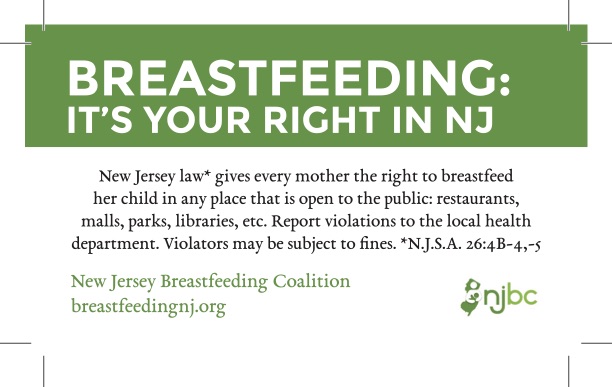
POSITION OF NEW JERSEY BREASTFEEDING COALITION ON THE APPLICATION OF THENEW JERSEY PUBLIC BREASTFEEDING LAW TO CHILD CARE CENTERS
February 27, 2020
New Jersey’s law on the right to breastfeeding in public, N.J.S.A. 26:4B-4, states:
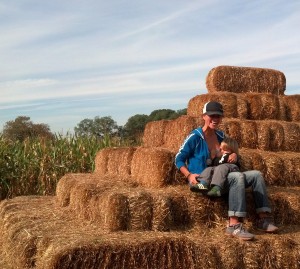 Notwithstanding any provision of law to the contrary, a mother shall be entitled to breast feed her baby in any location of a place of public accommodation, resort or amusement wherein the mother is otherwise permitted. (Emphasis supplied).
Notwithstanding any provision of law to the contrary, a mother shall be entitled to breast feed her baby in any location of a place of public accommodation, resort or amusement wherein the mother is otherwise permitted. (Emphasis supplied).
A “place of public accommodation, resort or amusement has been defined in New Jersey civil rights law as follows:
N.J.S.A 10:1-5. Place of public accommodation, resort or amusement defined
A place of public accommodation, resort or amusement within the meaning of this chapter shall be deemed to include any inn, tavern, road house or hotel, whether for entertainment of transient guests or accommodation of those seeking health, recreation or rest; any restaurant, eating house, or place where food is sold for consumption on the premises; any place maintained for sale of ice cream, ice and fruit preparations or their derivatives, soda water or confections, or where any beverages of any kind are retailed for consumption on the premises; any garage, any public conveyance operated on land or water, and stations and terminals thereof; any public bathhouse, public boardwalk, public seashore accommodation; any theater, or other place of public amusement, motion-picture house, airdrome, music hall, roof garden, skating rink, amusement and recreation park, fair, bowling alley, gymnasium, shooting gallery, billiard and pool parlor; any dispensary, clinic, hospital, public library, kindergarten, primary and secondary school, high school, academy, college and university, or any educational institution under the supervision of the regents of the state of New Jersey. Nothing contained in sections 10:1-2 to 10:1-7 of this title shall be construed to include, or to apply to, any institution, club, or place of accommodation which is in its nature distinctly private, or to prohibit the mailing of a private communication in writing sent in response to a specific written inquiry.
This NJ Division on Civil Rights informational poster also indicates that places of public accommodation include not only public spaces but also privately-owned establishments like restaurants and taverns as well as schools. Thus, infant and toddler child care centers that advertise to the public and represent themselves in online and written advertisements as preschool and child care centers that provide early learning services to children from infancy up to school-aged appear to fit well within the definition of “public accommodation” in N.J.S.A. 10:1-5.
Once public accommodation status has been established, the language of the NJ public breastfeeding law is explicit. It states that a mother may breastfeed “in any location of a place of public accommodation, resort or amusement wherein the mother is otherwise permitted.” It does not say that the mother must breastfeed in a “reasonable accommodation” or a designated breastfeeding space if a proprietor chooses to provide such a place. There is no doubt that the NJ Legislature knows how to require a “reasonable accommodation” for public breastfeeding if that was the legislative intent; for example, the Legislature explicitly did so in the NJ Law Against Discrimination, which requires employers to provide to employees “reasonable accommodation in the workplace, such as bathroom breaks” to women affected by pregnancy. See N.J.S.A 10:5-12 (s). To the contrary, the NJ public breastfeeding law does not contain such language, but rather, very clearly states that a mother can breastfeeding in any location of the public accommodation where she is otherwise entitled to be. Thus, other definitions of what constitutes a “reasonable accommodation” like those found in federal disability law are not relevant to the New Jersey public breastfeeding law.
Likewise, the recent enactment of N.J. Rev. Stat. § 26:4C-2, -3, -7 (2019) that requires certain public facilities and offices, including health care facilities, federally qualified health care centers, welfare offices and other offices to provide an on-site lactation room also does not require a mother to use a designated space provided to breastfeed if she does not wish to. According to the law’s Assembly sponsor Eliana Pinter Marin, this statute was enacted in recognition that “[w]hile women should be able to nurse their babies publicly, some women prefer to do it in a more quiet setting.” See “Governor Murphy Signs Legislation Requiring Lactation Rooms in Certain Public Facilities.” She further explains: “This new law will provide women with the convenience of a private room at a public facility where they can nurse and still be able to accomplish their task.” Senate sponsor Sen. Teresa Ruiz also echoes this sentiment that it is a mother’s right to breastfeed wherever she wishes:
“By providing information on a woman’s right to breastfeed in public and creating a lactation room in certain buildings we can empower New Jersey mothers to feed their children as they see fit,” said Senator M. Teresa Ruiz. “Wherever they are, new mothers deserve a safe space where they can choose to nurse or express milk. Breast milk offers enormous health benefits to the development and growth of a child and we should encourage women who choose to nurse in any way that we can.”
In sum, nothing in §26:4C-2, -3, -7 requires the mother to use the lactation room provided in a public building if she is comfortable breastfeeding in public. Moreover, the New Jersey public breastfeeding law does not require a mother to use a designated space to breastfeed within a public accommodation but rather explicitly allows her to breastfeed wherever in that place where she is otherwise legally entitled to be.
List of Laws
N.J. Rev. Stat. § 26:4B-4 (1997) entitles a mother to breastfeed her baby in any location of a place of public accommodation, resort or amusement wherein the mother is otherwise permitted. Failure to comply with the law may result in a fine.
N.J. Rev. Stat. § 26:2-179 (2003) requires the department of health, in consultation with the department of environmental protection, to prepare a consumer’s mercury alert notice for posting in all patient areas of professional medical offices that provide gynecological, obstetrical or pediatric care and in the patient or client areas of all maternal and child health and nutrition programs. The notice shall explain the danger to women who are pregnant or breastfeeding their children, and young children, of eating mercury contaminated fish.
N.J. Rev. Stat. § 17:48-6qq, § 17:48A-7nn, § 17:48E-35.41, § 17B:26-2.1kk, § 17B:27-46.1qq, § 17B:27A-7.24, § 17B:27A-19.28, § 26:2J-4.42, § 52:14-17.29z and § 52:14-17.46.6k (2017) require coverage for donated human breast milk.
N.J. Rev. Stat. § 10:5-12 (2018) makes it an unlawful employment practice to discriminate based on pregnancy or breastfeeding in compensation or financial terms of employment.
N.J. Rev. Stat § 54:32B-8.63 (2018) exempts breast pumps, breast pump repair and replacement parts, breast-pump collection and storage supplies and certain breast-pump kits from sales tax.
N.J. Rev. Stat. § 9:6-8.98.1 (2018) requires the Child Fatality and Near Fatality Review Board to study racial and ethnic disparities that contribute to infant mortality and addresses disparities in breastfeeding initiation and duration to increase supports among racial and ethnic populations.
N.J. Rev. Stat. § 17:48-6ss, § 17:48A-7pp, § 17:48E-35.43, § 17B:26-2.1ll, § 17B:27-46.1ss, § 17B:27A-7.25, § 17B:27A-19.29, § 26:2J-4.44, § 52:14-17.29cc and § 52:14-17.46.6n (2018) require coverage for breastfeeding support.
New Jersey Assembly Resolution 245 (2018) urges certain airline companies to change policies to allow passengers to carry breast pumps and breast milk onto aircraft without counting against carry-on limits.
New Jersey Assembly Resolution 244 (2019) urges the president and Congress of the U.S. to enact laws prohibiting airlines from counting breast milk or breast pumps against the airline’s carry on limit or restricting passengers from carrying breast milk onto aircraft.
N.J. Rev. Stat. § 26:4C et. seq. (2019) require certain public facilities and offices to provide an on-site lactation room; requires the department of health to provide information about lactation room availability; requires the department of education to provide information on lactation policies in schools.
N.J. Rev. Stat. § 30:4D-6 (2019) requires Medicaid coverage for pasteurized donated human breast milk, under certain circumstances.
N.J. Rev. Stat. § 30:4D-6o (2019) requires health benefits and Medicaid coverage for breastfeeding support. N.J. Rev. Stat. § 30:4-82.8 (2019) restricts the use of isolated confinement in correctional facilities, prohibits holding an inmate in isolated confinement based on several factors, including pregnant or breastfeeding status.
Updated October 2025
